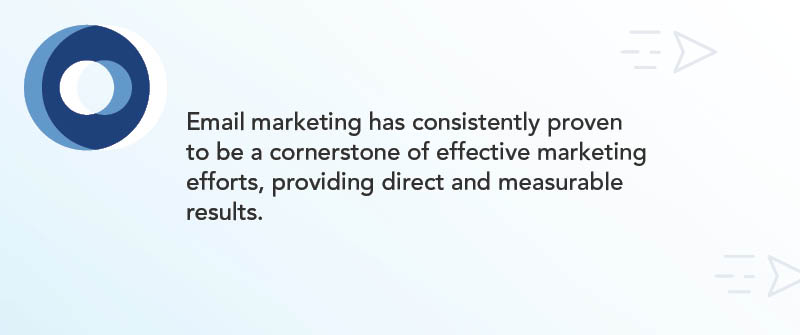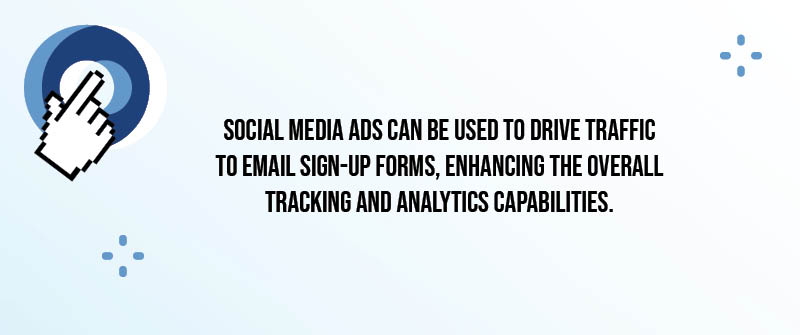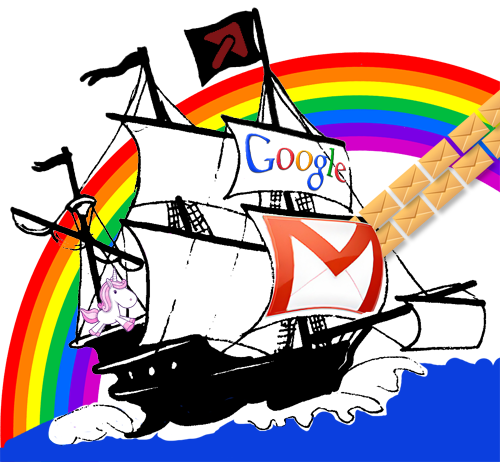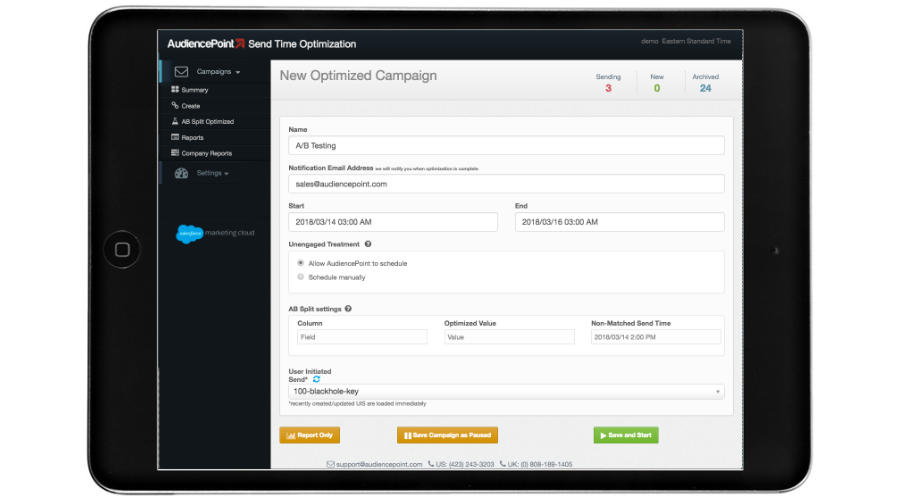AudiencePoint is thrilled to announce our new integration with Klaviyo! AudiencePoint is looking for partners to pilot our...
When it comes to digital outreach, both email marketing and social media marketing have their merits, but email marketing often edges out due to its targeted approach and measurable impact. Email marketing consistently delivers a higher return on investment (ROI), owing to its direct reach and personal touch, while social media offers broader visibility but at the cost of reduced engagement. However, using both social media and email marketing together can enhance overall marketing effectiveness.
To read more about Email Marketing Trends in 2025 read our blog!
Comparison Of Metrics Between Email And Social Media
In evaluating metrics, email marketing leads with an average open rate of approximately 20%, which translates into higher conversion rates compared to social media engagements like likes or shares. These metrics demonstrate that emails tend to generate tangible actions, such as clicks or purchases, more effectively than social media posts. Email consistently posts higher click through rates, translating those opens into real conversions.
Both email marketing and social media are effective digital marketing channels, each offering unique advantages that can be leveraged to enhance overall marketing strategies.
Targeting Capabilities Of Email Vs. Social Media
Another noteworthy difference is the targeting precision, which is crucial for effectively reaching your target audience. Emails allow marketers to segment audiences based on customer behavior, demographics, or purchase history, resulting in highly personalized campaigns. Meanwhile, social media platforms rely on algorithms that can often dilute a brand’s message, reaching a less specific audience.
Engagement Rates In Email Vs. Social Media
Engagement quality also varies significantly between the two channels. While social media’s reach is undeniably vast, email marketing facilitates a more intentional connection, inviting subscribers to engage on a deeper level. This kind of interaction is critical for building long-term loyalty and driving repeat business, a crucial component of effective brand marketing strategies. Although social channels achieve massive reach, the engagement depth often trails that of a well-crafted email.
Overall, both channels should be part of a robust digital marketing strategy, but the precise targeting and high engagement rates make email marketing a more effective standalone solution for driving conversions. Leveraging platforms like AudiencePoint can enhance this potential, offering robust segmentation and personalization tools to optimize campaign efficiency.
Is Email Marketing 40 Times More Effective Than Social Media?
Email marketing is frequently touted as being up to 40 times more effective than social media marketing in terms of converting prospects into customers. This claim is supported by studies demonstrating the superior reach and ROI of email marketing compared to traditional social media platforms. While social media is an excellent tool for building brand awareness and fostering engagement, email marketing excels at driving direct responses and conversions.
Examination Of Current Statistics
Recent social media marketing statistics show that email marketing as a marketing channel can generate a return on investment (ROI) of about $36 for every dollar spent, significantly outpacing the typical returns seen with social media marketing initiatives. Social media can be less predictable due to constant algorithm changes that may limit a brand’s reach without additional paid promotion. Conversely, emails sent are guaranteed to reach the subscriber’s inbox, bypassing such gatekeepers and ensuring a direct connection with the audience.
Historical Context Of Email Marketing Effectiveness
Historically, email marketing has been a steadfast component of digital marketing strategies due to its effectiveness. Since the 1990s, email has been a reliable channel for engaging users directly with targeted messages, a capability that has only been enhanced by technological advances in segmentation and personalization. As social media gained prominence, the direct nature of email has continued to stand out against the backdrop of more indirect social interactions.
Email marketing has consistently proven to be a cornerstone of effective marketing efforts, providing direct and measurable results.

Factors Contributing To The Perceived Effectiveness
Several factors contribute to email marketing’s perceived effectiveness. These include direct access to consumers, the ability to deliver personalized communication right to the recipient’s inbox, and powerful analytics tools that allow marketers to refine their strategies continuously. Additionally, unlike social media platforms where ever-changing algorithms dictate visibility, email marketing gives brands control over who receives their content and when.
The integration of tools like AudiencePoint can amplify these benefits. By leveraging AudiencePoint’s advanced analytics and engagement tracking, businesses can maximize the efficiency of their email campaigns, ensuring that they reach the right audience at the right time. This precise targeting not only boosts open and conversion rates but also enhances the overall customer experience, reinforcing the position of email marketing as a cornerstone of effective digital strategies.
Why Is A Marketer Better Off Using Email Over Social Media For A Post-Conversion Message?
Email marketing is a vital tool for conveying post-conversion messages due to its direct communication nature. Unlike social media, email provides a personal, one-to-one dialogue with your audience, allowing for tailored communication that significantly enhances customer experience. This can result in higher engagement and a sense of connection that media platforms might fail to achieve due to their often more generalized approach. To maximize the benefits, marketers should integrate social media with email marketing to convert social media followers into email subscribers.
Direct Communication Benefits Of Email
Email is inherently tailored for direct communication. It enables marketers to send specific and focused messages directly to the recipient’s inbox, free from the noise and distractions typical of social media feeds. This targeted approach ensures that your carefully crafted message reaches its intended recipient unfiltered, increasing the chances of engagement and building stronger relationships.
Utilizing social media accounts to promote email sign-ups can further enhance the direct communication benefits of email marketing.
Personalization Capabilities Of Email
One of the standout features of email marketing is its ability to be highly personalized. By leveraging data insights, marketers can customize messaging to reflect the individual’s purchasing history, preferences, and behaviors. This personalization makes emails more relevant to the recipient, boosting open rates and fostering increased brand loyalty. For post-conversion messages, this personalization is crucial as it acknowledges the customer’s journey and sets the stage for further engagement. Running a social media contest can be an effective strategy to gather email addresses and personalize future communications.
Enhanced Tracking And Analytics In Email Marketing
Unlike social media, where user actions can be challenging to monitor individually, email marketing allows for comprehensive tracking and analytics. Marketers can easily track who has opened an email, clicked on links, or even made subsequent purchases. These data points provide invaluable insights into customer interactions with the brand, enabling more informed strategy adjustments. This level of tracking is particularly beneficial for post-conversion communication, as understanding customer responses can guide future campaigns and promote sustained customer engagement. Additionally, social media ads can be used to drive traffic to email sign-up forms, enhancing the overall tracking and analytics capabilities.
By using these capabilities, AudiencePoint empowers marketers with the insights needed to continuously refine their strategies. Our state-of-the-art tools enable flawless personalization and strategic tracking that optimize email engagement, assuring your post-conversion messages are more than just a mere follow-up but a stepping stone to building lifelong customer relationships.

What Is More Effective Than Email Marketing?
While email marketing remains a highly effective tool in the digital marketing landscape, emerging technologies and strategies are beginning to complement its efficiency. The key to enhancing the efficacy of email marketing lies in the integration of these innovative strategies, which bridge gaps between email and other digital marketing channels.
Exploration Of Emerging Marketing Channels
Emerging marketing channels such as SMS marketing, push notifications, and artificial intelligence-driven messaging platforms are becoming increasingly popular. These channels offer real-time engagement opportunities and allow marketers to reach audiences across multiple touchpoints. While these channels supplement email marketing, the synergy between them can lead to higher engagement rates and increased conversion. Social media excels in providing real-time engagement opportunities and broad reach, making it a valuable complement to email marketing.
Innovations Bridging Email And Other Digital Strategies
Innovations in marketing technology are facilitating the seamless blending of email with other digital strategies. Tools that leverage AI for predictive analytics and customer insights can refine email content and timing, ensuring messages resonate with recipients more effectively. Moreover, Machine Learning algorithms can analyze user behavior, helping marketers craft proactive email campaigns that anticipate customer needs.
Innovations in digital strategies can enhance both email marketing and social media efforts, leading to higher engagement and conversion rates.
Integration Of Cross-Channel Tools
An exciting development in the world of digital marketing is the integration of cross-channel tools that enhance how we approach each marketing channel, including email marketing. For instance, tools monitoring inbox placement allow marketers to ensure their emails land in users’ primary inboxes rather than spam folders. These tools provide data-driven insights, enabling marketers to make informed decisions and optimize delivery performance.
Embrace new functionalities by elevating your email marketing campaigns with AudiencePoint. Gain actionable insights into subscriber behavior to drive engagement and optimize campaign performance, ensuring your brand stands out in the crowded digital landscape. Reach out today to learn more!





